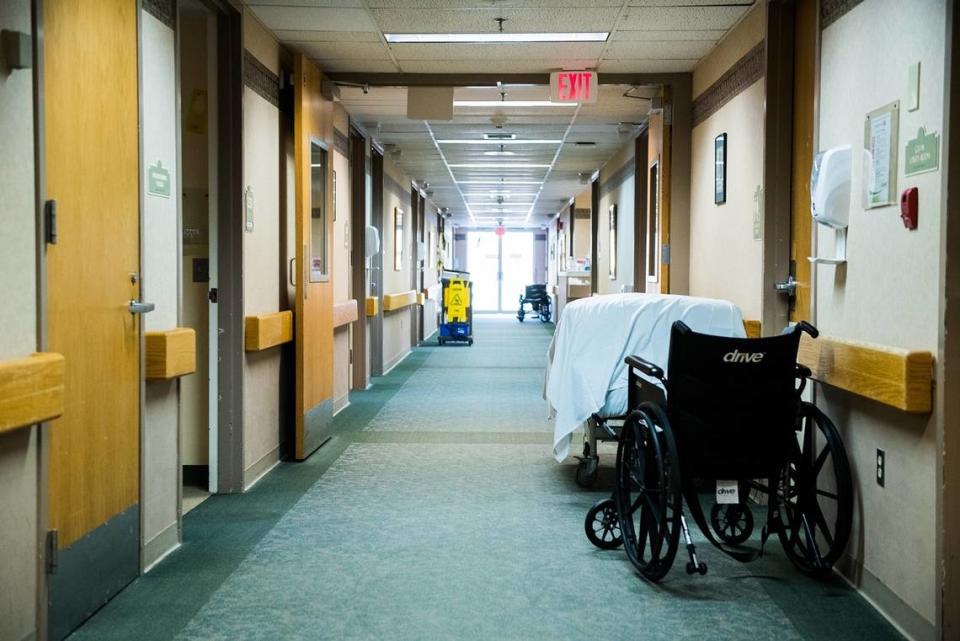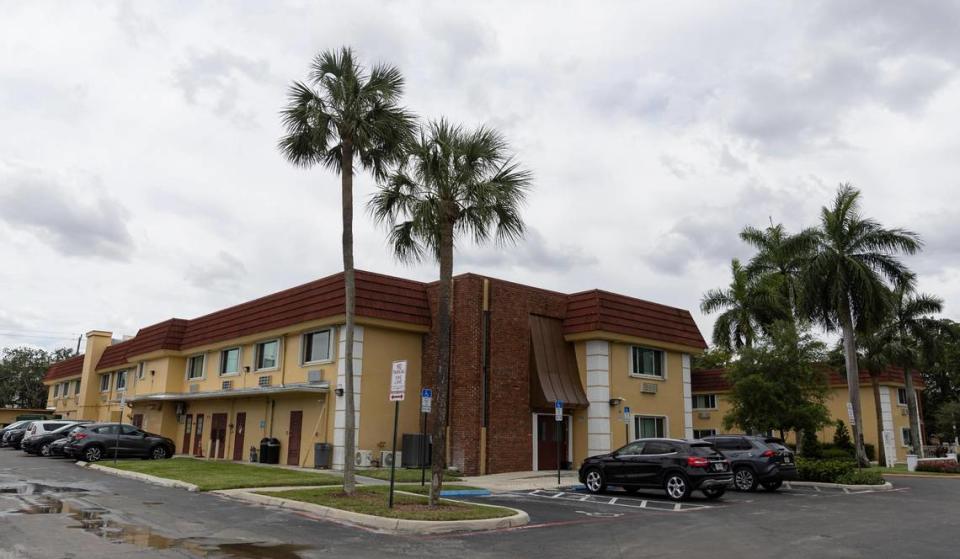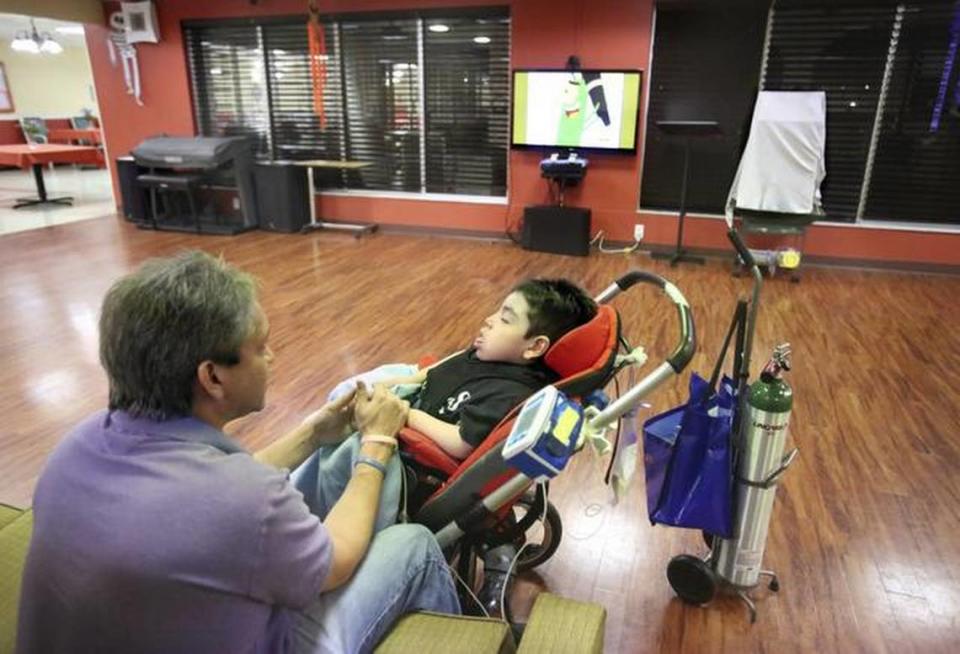Florida fights judge’s order to stop steering severely disabled kids into nursing homes
One week after a federal judge ordered Florida health administrators to cease relying on nursing homes for the care of children with complex medical needs, the state is back in court, arguing that it would be “impossible” to comply with the judge’s ruling.
For more than a decade, lawyers for the state Agency for Health Care Administration fought a lawsuit by the U.S. Justice Department’s civil rights division seeking to remove children — some just infants and toddlers — from nursing homes. The Justice Department claimed that Florida’s health policies, in effect, forced the parents of children with severe disabilities to institutionalize their children in violation of federal civil rights laws such as the Americans with Disabilities Act.
The cornerstone of the DOJ’s claim was the inability of many parents to secure sufficient in-home nursing care, largely as the result of what critics say is an inadequate reimbursement rate under Medicaid, the state’s long-troubled insurance program for impoverished and disabled Floridians. The payment rate, experts claim, has led to an intractable nursing shortage — one that doesn’t exist in states with more generous reimbursement rates.
U.S. District Judge Donald Middlebrooks’ order could directly affect 140 children and adolescents currently living in institutions, though the judge’s order also applies to 1,800 additional youngsters who, he wrote, are at risk of ending up segregated from their parents and communities.

The judge’s order also potentially could affect about 2,750 other severely disabled children in Florida who rely on Medicaid for in-home nursing care — many of whom have complained for years that they can’t hold on to jobs or sustain marriages due to the hardships they face providing around-the-clock care.
READ MORE: In stinging rebuke, judge orders Florida to stop funneling frail kids into nursing homes
In an injunction the judge signed July 14 as part of the litigation’s resolution, Middlebrooks ordered the state to provide at least 90% of the private-duty nursing hours prescribed for children with complex medical needs. AHCA already requires the state’s Medicaid managed-care plans — private companies that administer healthcare under contract with the state — to provide “all medically necessary services” to children with medical complexities, including “100% provision” of private- duty nursing, Middlebrooks wrote.
But in a pleading filed late last week, lawyers for the state complained that Middlebrooks misunderstood federal law governing the state’s Medicaid program, and, in any case, that his prescription for returning medically fragile to their communities was doomed to failure. The claims are part of a motion from the state seeking a stay of Middlebrooks’ July 14 order while the state appeals.
“The injunction is inappropriate,” the state wrote, “because compliance is unachievable.”
“Beyond the shadow of a doubt, the state will violate the injunction through no fault of its own, and despite its best efforts, because the provision of 90% of [private-duty nursing] hours to 2,750 children in the midst of a nursing shortage is simply impossible.”
“The United States presented no evidence that an across-the-board, 90% person-by-person minimum could be reasonably achieved in Florida or anywhere else,” the state wrote.

In his order, Middlebrooks dismissed that argument as circular reasoning: Florida Medicaid administrators, he wrote, artificially created a nursing shortage by refusing to pay nurses enough to compete with the private market — and then cited the nursing shortage as the reason that any court-ordered reform would fail. He referred to the state’s system of care for fragile children as “a maze almost impossible for parents to escape.”
The inability of many families to secure in-home nursing was only a barrier to families wishing to care for their children at home “because of the state’s failure to provide” it, Middlebrooks wrote.
In a statement, the Justice Department called Middlebrooks’ order “a major turning point in the treatment of children with disabilities in Florida [that] vindicates their right” to live with families or in community settings.
READ MORE: ‘Just another baby for them.’ Parents, feds fight for kids stuck in Florida nursing homes
“This is a momentous decision impacting hundreds of vulnerable children and their families,” said Assistant Attorney General Kristen Clarke in a prepared statement. “The court’s ruling sends a clear message that children with complex medical needs deserve to grow up with the love and support of their families, and should not be confined to nursing facilities where they are stripped apart from their communities.”
The motion to stay renews the state’s contention that any reforms ordered by Middlebrooks would amount to “a broad federal takeover and long-term micromanagement of entire services in the Florida Medicaid program.”
The judge’s July 14 injunction “retools the state’s Medicaid program with the hope of improving some of the services it provides, and inserts the federal government into innumerable aspects of the state’s service-delivery system, including service utilization rates, data collection, forms, trainings, complaints, contracts, transition planning [and] external reviews.”
“That is the function of legislatures and executive agencies, rather than courts,” said the pleading, signed by attorneys Ashley H. Lukis, Andy Bardos and James Timothy Moore Jr. of the firm GrayRobinson.
The motion to stay denounced the judge’s order as a grab of state authority that fails to consider the costs of complying. “The administrative personnel and resources necessary to accomplish the sweeping programmatic changes that the injunction compels are staggering,” the state wrote.
The injunction, the state wrote, will force Florida to move medically fragile children to the front of the line in a healthcare system that already rations care: “The state will be forced to divert extraordinary resources away from administering programs for needy children and adults alike, many with serious disabilities and medical hardships of their own, and instead favor the population that the United States deemed most fit for litigation.”

Health administrators, meanwhile, have spent millions fighting the Justice Department, though the Agency for Health Care Administration has refused to say how much it has paid its lawyers.
The state explicitly cited several Medicaid managed-care initiatives as potential victims of a re-prioritizing of scarce state resources, including a pilot program in Miami-Dade that seeks to funnel Floridians with developmental and intellectual disabilities into managed-care plans.
But Middlebrooks criticized the state’s reliance on managed-care providers, as well, saying Florida had outsourced its obligation to those who cannot take care of themselves to private entities — then washed its hands of responsibility when the managed-care plans fell short of their contractual requirements.
“One of the most perplexing aspects of this case is the apparent unwillingness of the state to enforce its contracts.” Middlebrooks wrote. He added: “Through inaction, the state is converting managed-care contracts from a “requirements” to a “best efforts” type care relationship. This inaction, in effect, gives tacit approval to the failure to provide service.”
Matthew Dietz, a disability rights advocate whose class-action lawsuit in 2012 over the plight of medically complex children later was merged into the DOJ’s lawsuit, dismissed the motion to stay as mere “whining” by health administrators over hard-fought litigation the state lost.
“In view of the 33rd anniversary of the Americans with Disabilities Act, it is hard to believe that we have not ensured that parents always have the support and opportunity to raise their child with a disability in their home,” he said. “The obstinance of this administration to provide for the most vulnerable in our society demonstrates that their priorities are not with either children or persons with disabilities.
“It only lays bare the hypocrisy of the statements from this [state] administration regarding their adherence to the culture of life and the importance of family,” added Dietz, who heads the Disability Inclusion and Advocacy Law Clinic at Nova Southeastern University’s Shepard Broad College of Law.

